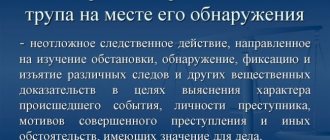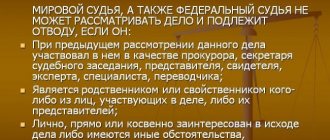1. In criminal proceedings, the following must be proven: 1) the event of the crime (time, place, method and other circumstances of the commission of the crime); 2) the person’s guilt in committing a crime, the form of his guilt and motives; 3) circumstances characterizing the personality of the accused; 4) the nature and extent of the damage caused by the crime; 5) circumstances excluding criminality and punishability of the act; 6) circumstances mitigating and aggravating punishment; 7) circumstances that may entail release from criminal liability and punishment; circumstances confirming that the property subject to confiscation in accordance with Article 104.1 of the Criminal Code of the Russian Federation was obtained as a result of the commission of a crime or is proceeds from this property or was used or intended to be used as a weapon, equipment or other means of committing a crime or for financing terrorism , extremist activity (extremism), organized group, illegal armed group, criminal community (criminal organization).
2. The circumstances that contributed to the commission of the crime must also be identified.
Commentary on Article 73 of the Code of Criminal Procedure of the Russian Federation
1. The commented article contains a list of circumstances that are subject to proof in all categories of criminal cases without exception and in relation to all persons about whom there is information as having committed crimes.
The term “circumstances” means that it is not conclusions, judgments, or even information that are subject to proof, but real events that actually took place. If at least one of them is not reliably established, then the person cannot be found guilty of committing a crime and punished.
2. The list of circumstances contained in the commented article is universal. At the same time, during criminal proceedings, these circumstances are established (or refuted) with the help of specific evidence, which is individual for each case of an act containing signs of a crime.
3. The circumstances to be proven are correlated in a certain way with the elements of the crime: the event of the crime, the nature and extent of the harm caused by the crime - with the object of the crime and the objective side of the crime; the guilt of a person in committing a crime, the form of his guilt and motives, the circumstances characterizing the personality of the accused - with the subject of the crime and the subjective side of the crime. However, such a combination does not indicate the identity of these concepts, since the correct criminal legal qualification of an act is a consequence of the proper establishment of the circumstances to be proven.
4. In paragraph 1 of part 1 of the commented article it is established that in all criminal cases the event of the crime is subject to proof, i.e. the very fact of committing an act, as well as the circumstances that individualize it: time, place, method, etc.
5. Since a crime in the cases established by the Criminal Code of the Russian Federation is not only a criminally punishable action, but also an inaction, the term “crime event” should be interpreted broadly, meaning not only changes in the environment caused by the active behavior of a person, but also the absence of changes in in cases where this was required to eliminate socially dangerous consequences (an example of criminal inaction is malicious evasion of payment for the maintenance of children or disabled parents - Article 157 of the Criminal Code of the Russian Federation).
6. The concept of time in the context of the commented norm covers several categories: 1) a specific time during the day at which the act occurred; 2) a special temporary regime that causes an increased social danger of the act; 3) the presence of certain circumstances associated with a particular period of time.
In the first case, for each criminal case the start and end time of the act must be established. The time period must be established with the greatest possible accuracy, but circumstances such as the period of time that occurred from the moment the crime was committed until it was discovered, as well as until the person who committed the act was identified, should be taken into account.
As for special periods, the Criminal Code of the Russian Federation establishes such a concept as “wartime”. According to Part 3 of Art. 331 of the Criminal Code of the Russian Federation, criminal liability for crimes against military service committed in wartime or in a combat situation is determined by wartime legislation.
7. Various circumstances associated with a certain period of time arise in cases where a person during this period acquires the status of a special subject of a crime. For example, the subject of receiving a bribe (Article 209 of the Criminal Code of the Russian Federation) may be a person acting as a juror during the consideration of this criminal case in court.
8. The time of commission of the crime is also important for establishing the statute of limitations (Article 78 of the Criminal Code of the Russian Federation, paragraph 3, Part 1, Article 24 of the Criminal Procedure Code of the Russian Federation).
9. The location of the crime is the specific area of space where the act was committed. The concept of the place where a crime was committed, as a rule, covers the area where the actions were performed (or the required actions were abstained) that constituted the objective side of the act.
10. In some cases, the place where the crime was committed has legal significance (for example, Article 214 of the Criminal Code of the Russian Federation provides for liability for vandalism, i.e. desecration of buildings and other structures, damage to property on public transport or in other public places). In other situations, this may act as a circumstance indicating an increased social danger of the act (for example, murder in a public place in a number of cases indicates a generally dangerous method of committing this act - clause “e”, part 2 of article 105 of the Criminal Code of the Russian Federation).
11. Within the meaning of the criminal law, the place where a crime was committed should be considered the place where all criminal actions were completed, regardless of where the socially dangerous consequences occurred.
12. The method of committing a crime is a set of techniques that were used by a person to achieve a criminal result. Establishing a method makes it possible to individualize an act, establish the degree of its social danger, and, in combination with other evidence, to expose a specific person in committing a crime.
13. In a number of cases, the method of committing a crime has criminal legal significance: clause “e”, part 2 of Art. 105 of the Criminal Code of the Russian Federation (murder committed in a generally dangerous manner); Part 2 Art. 167 of the Criminal Code of the Russian Federation (deliberate destruction or damage to property committed by arson, explosion or other generally dangerous method), etc. Some articles of the Special Part of the Criminal Code of the Russian Federation, on the contrary, contain an approximate list of methods of committing a crime: Part 1 of Art. 150 of the Criminal Code of the Russian Federation (involving a minor in committing a crime by promises, deception, threats or other means); Part 1 Art. 183 of the Criminal Code of the Russian Federation (collection of information constituting commercial, tax or banking secrets by stealing documents, bribery or threats, as well as in other illegal ways), etc.
14. “Other circumstances of the commission of a crime” should be understood as any circumstances that make it possible to individualize the event of a specific act, highlight its most significant features that can affect the establishment of all elements of the crime and the individualization of punishment if a person is found guilty by a court verdict.
15. Paragraph 2 of Part 1 of the commented article in the list of circumstances subject to proof mentions the guilt of a person in committing a crime, the form of his guilt and motives. The categories “guilt” and “guilt”, despite the similarity of sound and close relationship, are still not identical. To establish the guilt of a person means to prove that a specific person committed a certain act and that this act is a crime in accordance with the Criminal Code of the Russian Federation. Guilt is a concept that does not characterize the crime as a whole, but only its objective side. Thus, established guilt is one of the conditions for proving a person’s guilt in committing a specific crime, however, there are a number of other circumstances, upon establishing which a person can be found guilty and subjected to punishment or released from serving it.
16. In criminal law, guilt is understood as the mental attitude of a person to the act he committed and the consequences that occurred. According to Art. 24 of the Criminal Code of the Russian Federation, guilt is possible in two forms: intent and negligence. As a general rule, a crime is an act committed with guilt in the form of intent. An act committed through negligence is recognized as a crime only in cases where it is specifically provided for by the relevant article of the Special Part of the Criminal Code of the Russian Federation.
17. In Art. 25 of the Criminal Code of the Russian Federation establishes that an act committed with direct or indirect intent is recognized as a crime committed intentionally. A crime is recognized as committed with direct intent if the person was aware of the social danger of his actions (inaction), foresaw the possibility or inevitability of the occurrence of socially dangerous consequences and desired their occurrence. A crime is considered committed with indirect intent if the person was aware of the social danger of his actions (inaction), foresaw the possibility of socially dangerous consequences, did not want to, but consciously allowed these consequences or was indifferent to them.
When deciding the content of the intent of the perpetrator, it is necessary to proceed from the totality of all the circumstances of the crime committed.
18. A crime committed through negligence, in accordance with Art. 26 of the Criminal Code of the Russian Federation recognizes an act committed through frivolity or negligence. A crime is considered committed out of frivolity if a person foresaw the possibility of socially dangerous consequences of his actions (inaction), but without sufficient grounds, he arrogantly hoped to prevent these consequences. A crime is considered committed through negligence if a person did not foresee the possibility of socially dangerous consequences of his actions (inaction), although with the necessary care and forethought he should and could have foreseen them.
19. If during the trial in the court of first instance the circumstances that are important for resolving the issue of a person’s guilt are superficially examined, then the verdict is subject to cancellation.
20. The conclusion about the form of guilt, as well as its proof, cannot be based on assumptions and must correspond to objectively established circumstances that are subject to proof in a criminal case.
21. If a person did not foresee the possibility of socially dangerous consequences occurring, but due to the circumstances of the case he should and could have foreseen them, his guilt is considered careless.
22. Motives for a crime are the internal motivating reasons why a person committed a specific crime. The motives for committing a particular act are formed in a person before the commission of actions or inactions that constitute the objective side of the crime. Motives exist in every case where a person commits a crime, since motiveless behavior indicates the presence of a mental disorder. In the absence of motivation or in the presence of a motivation other than that required to establish the elements of a crime, a person cannot be found guilty of committing it. For example, breaking into a home in the absence of mercenary motives cannot be classified as attempted theft.
23. An indication of the motives for committing a particular crime as qualifying criteria is contained in specific articles of the Special Part of the Criminal Code of the Russian Federation (105, 111, 112, 117, 145, etc.).
24. The court's conclusion about the motives for the crime must be based on evidence. On the other hand, for example, failure to establish the motives for murder is not a basis for qualifying the crime as committed out of hooligan motives.
25. The circumstances characterizing the personality of the accused, which are discussed in paragraph 3 of part 1 of the commented article, are such individual and social qualities of a person that make it possible to individualize the measure of criminal punishment if he is found guilty. These include, for example, information about the behavior of the accused at work, school and at home, the presence of a criminal record, whether the person is drug or alcohol dependent, the presence of children and other dependent persons of the accused, etc.
However, these facts do not replace the circumstances that confirm the occurrence of the crime and the guilt of a particular person in committing it. A person’s negative behavior, alcohol abuse, and other manifestations of socially negative behavior do not in themselves prove his involvement in the commission of a crime, just as externally positive qualities do not refute the version that the act was committed by this particular person.
26. If the court imposed a punishment without taking into account the specific circumstances of the criminal case and the identity of the perpetrator, then the verdict of the court of first instance is subject to cancellation or modification.
27. In paragraph 4 of part 1 of the commented article, the circumstances to be proven include the nature and extent of the harm caused by the crime. As for the nature of the harm, it corresponds to the type of harm that was caused to the victim (physical, moral or property, if the victim is an individual, and damage to property or business reputation, if the victim is a legal entity).
28. The amount of damage is calculated in Russian currency (rubles). If property damage is caused, it is calculated based on the value of the property that was subjected to criminal influence. Physical and moral harm is determined in material (monetary) equivalent, based on the degree of physical and moral suffering caused to the victim (Part 1 of Article 42 of the Code of Criminal Procedure of the Russian Federation).
29. Circumstances excluding criminality and punishability of an act (clause 5 of part 1 of the commented article) are enshrined in the Criminal Code of the Russian Federation. So, in ch. 8 of this act establishes that the circumstances excluding the criminality of an act include: 1) necessary defense (Article 37); 2) causing harm during the detention of a person who committed a crime (Article 38); 3) extreme necessity (Article 39); 4) physical or mental coercion (Article 40); 5) justified risk (Article 41); 5) execution of an order or instruction (Article 42 of the Criminal Code of the Russian Federation).
30. If the court has not fully investigated the circumstances excluding the criminality and punishability of the act, then the verdict of guilty is subject to cancellation by a higher court.
31. The provisions of the law on necessary defense apply equally to employees of the police and other law enforcement agencies, and no special conditions are established by law for the exercise of necessary defense by these persons.
32. According to paragraph 6 of part 1 of the commented article, in each criminal case circumstances mitigating and aggravating punishment are subject to proof. This allows the court to individualize the punishment within the sanction established by the criminal law, and the investigator, the head of the investigative body, the investigator, the head of the inquiry unit, the prosecutor - to resolve the issue of the possibility or impossibility of terminating the criminal prosecution against a given suspect (accused).
33. Circumstances mitigating punishment are established in Art. 61 of the Criminal Code of the Russian Federation, and the list contained therein is not exhaustive. In contrast, the list of aggravating circumstances is enshrined in Art. 63 of the Criminal Code of the Russian Federation is not subject to an exhaustive and broad interpretation.
34. The defendant’s admission of guilt, accompanied by their testimony about the circumstances of the criminal attack on the victim in the absence of other eyewitnesses at the scene, is a mitigating circumstance, regardless of the fact that the illegal activities of the defendants were revealed as a result of the work of law enforcement agencies.
On the one hand, in every criminal case, mitigating circumstances must be properly proven and reflected in the materials of the criminal case. But, on the other hand, the guilt of a person in committing a crime cannot be established or refuted by the presence of such circumstances themselves; they allow individualization of punishment only in cases where all other circumstances have also been proven, as a result of which the person was found guilty.
35. The investigator, interrogating officer is required to indicate in the final document of the preliminary investigation (indictment, indictment, indictment) both aggravating and mitigating circumstances (clause 7, part 1, article 220, clause 7, part 1, art. 225, part 1 of article 226.7 of the Code of Criminal Procedure of the Russian Federation).
36. In paragraph 7 of part 1 of the commented article it is stated that mandatory proof is subject to circumstances that may lead to exemption from criminal liability and punishment.
The first group includes the circumstances enshrined in Chapter. 11 of the Criminal Code of the Russian Federation: 1) exemption from criminal liability in connection with active repentance (Article 75); 2) exemption from criminal liability in connection with reconciliation with the victim (Article 76); 3) exemption from criminal liability due to the expiration of the statute of limitations (Article 78).
The second group includes the circumstances enshrined in Chapter. 12 of the Criminal Code of the Russian Federation: 1) conditional early release from serving a sentence (Article 79); 2) replacing the unserved part of the punishment with a more lenient type of punishment (Article 80); 3) release from punishment due to a change in the situation (Article 80.1); 4) release from punishment due to the expiration of the statute of limitations for a court conviction (Article 83).
37. In accordance with paragraph 8 of part 1 of the commented article, circumstances confirming the existence of a cause-and-effect relationship between the existence of certain property and the criminal acts as a result of which this property was unlawfully obtained are subject to proof. The connection must indicate that the property was obtained as a result of the commission of a crime; is income from this property; was used or intended to be used as a weapon, equipment or other means of committing a crime or for financing terrorism, an organized group, an illegal armed group, a criminal community (criminal organization).
38. Those subject to proof in accordance with Part 2 of the commented article also include the circumstances that contributed to the commission of the crime. They are divided into two groups: 1) circumstances that contributed to the formation of antisocial behavior; 2) circumstances that created favorable conditions for the preparation and commission of a crime, as well as for concealing its traces and results.
The first group includes shortcomings in the upbringing and social adaptation of a particular person, which, among other reasons, led to the formation of persistent antisocial attitudes in him. The second group should include circumstances not directly related to the crime event, which at the same time created the conditions for its commission or facilitated its commission, as well as subsequent (not promised in advance) concealment of the results (insufficient control over inventory, faulty alarms, etc.) .P.).
39. Having established, during pre-trial proceedings in a criminal case, circumstances that contributed to the commission of a crime, the inquiry officer or investigator submits to the relevant organization or relevant official a proposal to take measures to eliminate these circumstances or other violations of the law. This submission is subject to consideration with mandatory notification of the measures taken no later than one month from the date of its issuance (Part 2 of Article 158 of the Code of Criminal Procedure of the Russian Federation).
40. If, during the consideration of a criminal case, circumstances were identified that contributed to the commission of a crime, violations of the rights and freedoms of persons, as well as other violations of the law committed during the inquiry, preliminary investigation or during the consideration of the criminal case by the court, but no response measures were taken, then this a higher court has the right to do when reviewing a criminal case by issuing a private ruling or a private resolution (part 4 of article 29 of the Code of Criminal Procedure of the Russian Federation).
41. In each criminal case, all circumstances of the commission of a crime from those provided for in the commented article must be established.
42. In addition to (or instead of) the circumstances that are subject to proof in all categories of criminal cases, in a number of cases other circumstances must be proven: in criminal cases against minors (Article 421); in criminal cases on the use of compulsory medical measures (Article 434 of the Code of Criminal Procedure of the Russian Federation).
Everything about criminal cases
Go to the text of the Code of Criminal Procedure
Url Additional information:
Circumstances to be proven
- Part 1 73 Code of Criminal Procedure
subject to proof:
- clause 1 part 1 73 Code of Criminal Procedure
crime event
— clause 2, part 1 73 Code of Criminal Procedure
guilt of the person, form of guilt and motives
— clause 3, part 1, 73 Code of Criminal Procedure
circumstances characterizing the personality
— clause 4 part 1 73 Code of Criminal Procedure
amount of harm
— clause 5 part 1 73 Code of Criminal Procedure
circumstances excluding criminality
- clause 6, part 1 73 Code of Criminal Procedure
mitigating and aggravating circumstances
- clause 7 part 1 73 Code of Criminal Procedure
circumstances leading to release from punishment
- clause 8 part 1 73 Code of Criminal Procedure
grounds for confiscation
— Part 2 73 Code of Criminal Procedure
circumstances contributing to the commission of the crime
Article 73 of the Code of Criminal Procedure. Circumstances to be proven
1) During criminal proceedings, the following must be proven:
1). crime event:
Url Additional information:
— Part 2 9 Criminal Code
the time of occurrence is the time of the action (not the date of the consequences)
- Part 1 307 Code of Criminal Procedure
time of commission of the crime
Time of crime
Crime time
not defined, how important is this?
-
time,
- place,
- way,
— and other circumstances of the crime;
Url Additional information:
— Part 1 24 Criminal Code
guilt is an act done intentionally or through negligence
2). guilt of a person in committing a crime,
- form of his guilt,
- and motives;
3).
circumstances characterizing the personality of the accused;
Url Additional information:
Consequences of the crime
Character
and
the size
of the consequences (harm caused)
4).
the nature and extent of the harm caused by the crime;
Url Additional information:
— Chapter 8
Criminal Code circumstances excluding the criminality of the act
5). circumstances excluding criminality and punishability of the act;
6). circumstances mitigating and aggravating punishment;
7). circumstances that may lead to:
Url Additional information:
— Chapter 11
Criminal Code exemption from criminal liability
— exemption from criminal liability;
Url Additional information:
— Criminal Code exemption from punishment
- or exemption from punishment;
Url Additional information:
— P.
Plenum No. 17 what may be means of committing a crime
8).
circumstances confirming that the property subject to confiscation in accordance with 104.1 of the Criminal Code was obtained as a result of the commission of a crime or is proceeds from this property or was used or intended for use as a weapon, equipment or other means of committing a crime or for financing terrorism, financing extremist activities (extremism), organized group, illegal armed group, criminal community (criminal organization).
Url Additional information:
Particular definitions
— Part 4 29 Code of Criminal Procedure
private court ruling on contributing circumstances
— Part 2 73 Code of Criminal Procedure
circumstances that contributed to it must be identified
- paragraph 18
Plenum No. 29 private determination in case of violation of the right to defense
— paragraph 37
Plenum No. 17 private ruling on the rights of the victim
— P.
Plenum No. 51 is obliged to make a particular determination
— 17.4 Code of Administrative Offenses
failure to take measures based on a private court ruling
Appealing private determinations
— Part 3 389.2 Code of Criminal Procedure
this decision can be appealed before the final decision is made
— clause 1
Plenum No. 19 appealing private rulings in cassation
— clause 6
Plenum No. 26 appealing private court rulings in appeal
2) The circumstances that contributed to the commission of the crime must also be identified.
Return to the text of the Code of Criminal Procedure
Seek advice






